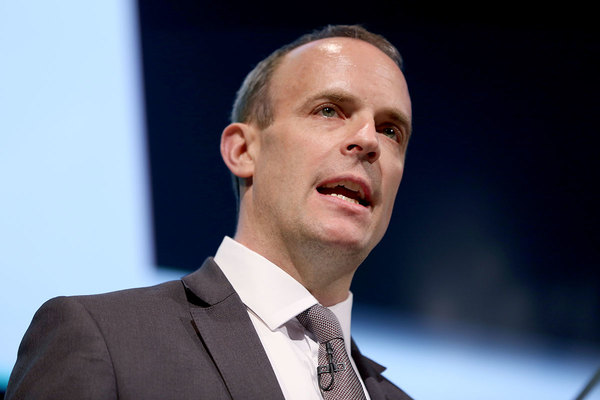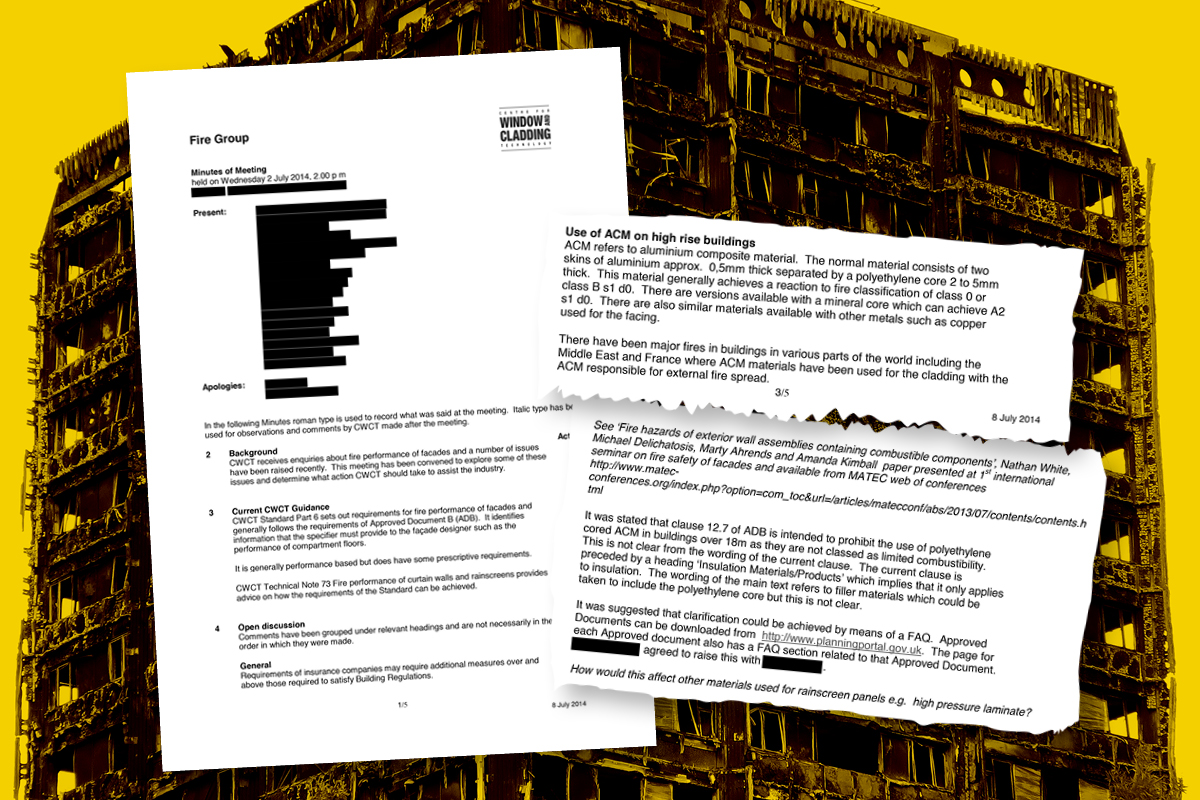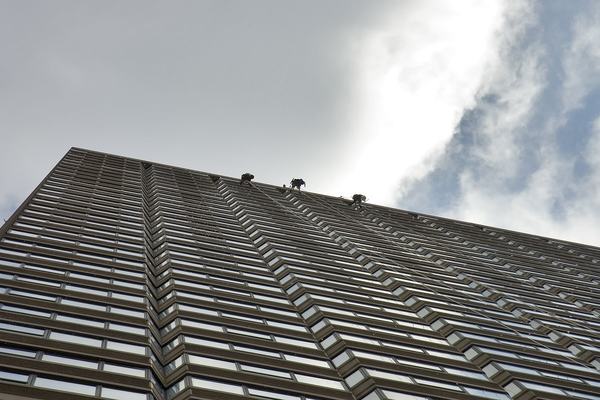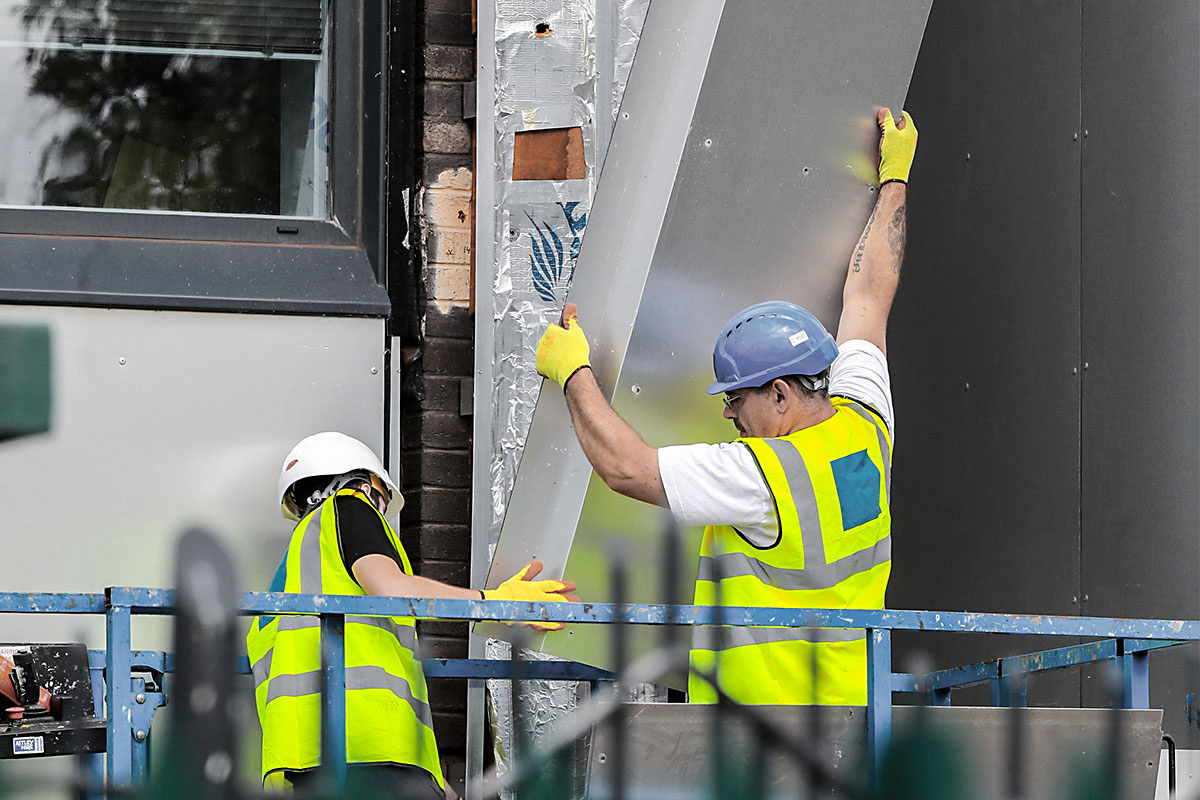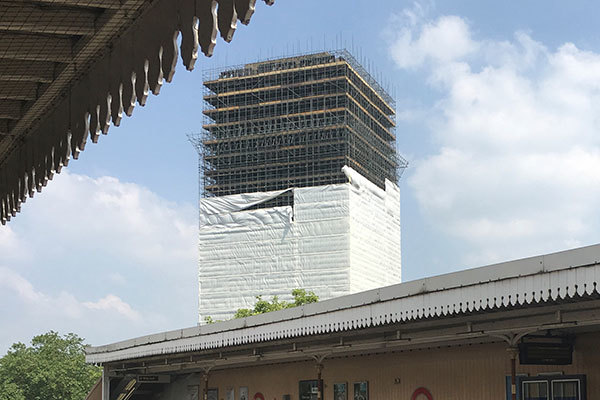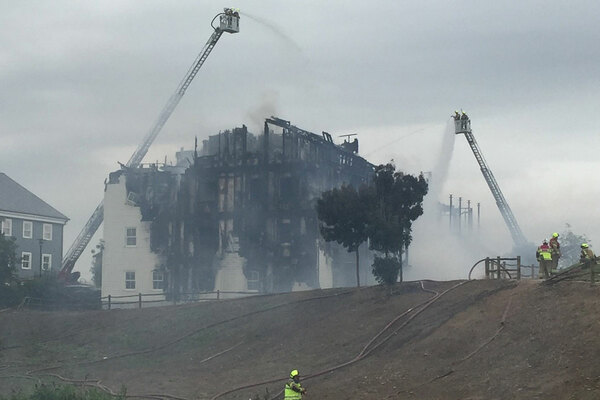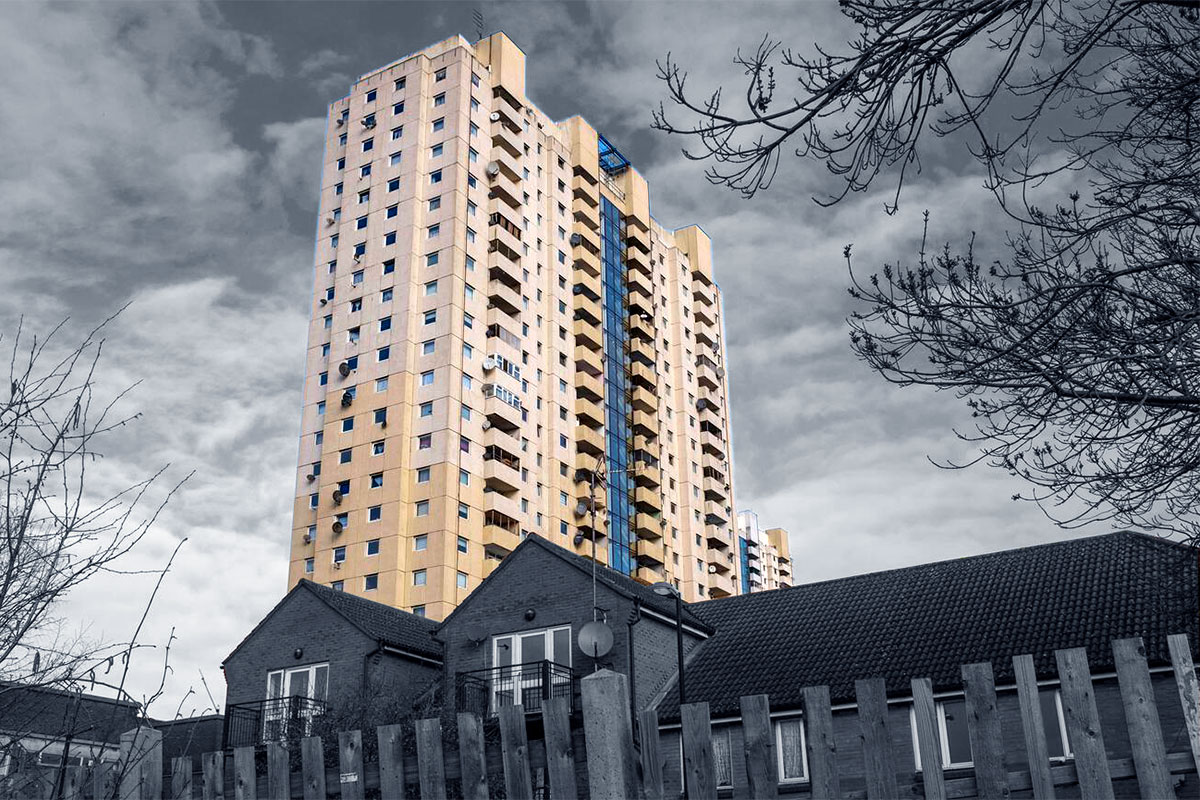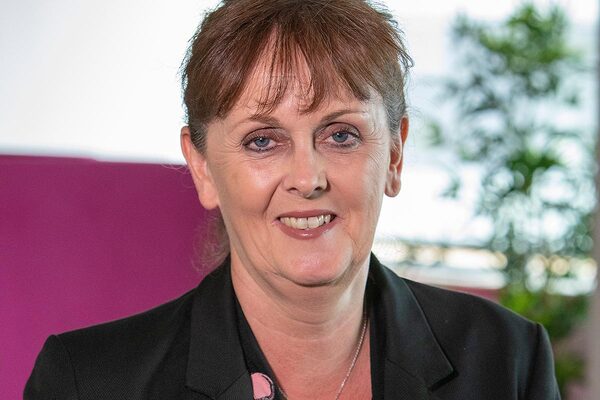You are viewing 1 of your 1 free articles
Raab: ‘inquiry to decide’ whether guidance allows combustible cladding
It is “for the inquiry to decide” whether the government’s official guidance on building regulations permits combustible cladding panels, the housing minister has said.
Dominic Raab made the comments while speaking to Inside Housing after his speech at Housing 2018, the Chartered Institute of Housing conference and exhibition.
Since the Grenfell Tower fire, the government has maintained that Approved Document B, its official guidance on how to comply with building regulations, instructs building owners to use cladding panels with core materials of limited combustibility.
Some in the industry, however, have claimed that the guidance was never interpreted like this before the fire, and that the document only required panels to be Class 0, a much less stringent requirement.
This is important because while many panels made from aluminium composite material (ACM) meet the Class 0, the core materials are not of limited combustibility.
The cladding used on Grenfell, for example, had an aluminium surface but a core made from polyethylene, a flammable material that has been blamed by most experts for the rapid and extensive spread of flame across the tower.
Four of the expert witnesses to the Grenfell Tower Inquiry have given their views on this debate. Of these, two sided with the government and two took the opposite view.
Asked about this, Mr Raab said: “There’s lots of experts with lots of different views on this. But actually, it’s a legal view first and foremost.
“We’ve taken very clear legal advice and we’re confident in our position, but what I’m going to avoid doing is commenting on the public inquiry because it’s important not to politicise that, to let it run its judicial course, and also not to arbitrate between the different views that one or other expert or lawyer may have on this. But we’re confident in our position on that.
“That’s why you have an inquiry that is very carefully chaired and I’m sure [Sir] Martin Moore-Bick will do that. With these things, this is why you have expert witnesses and legal views. You’ve got to get to the bottom of what the position is. But it will be for the inquiry to decide, within the terms of reference of the inquiry. We are very confident in our position that we’ve taken legally.”
